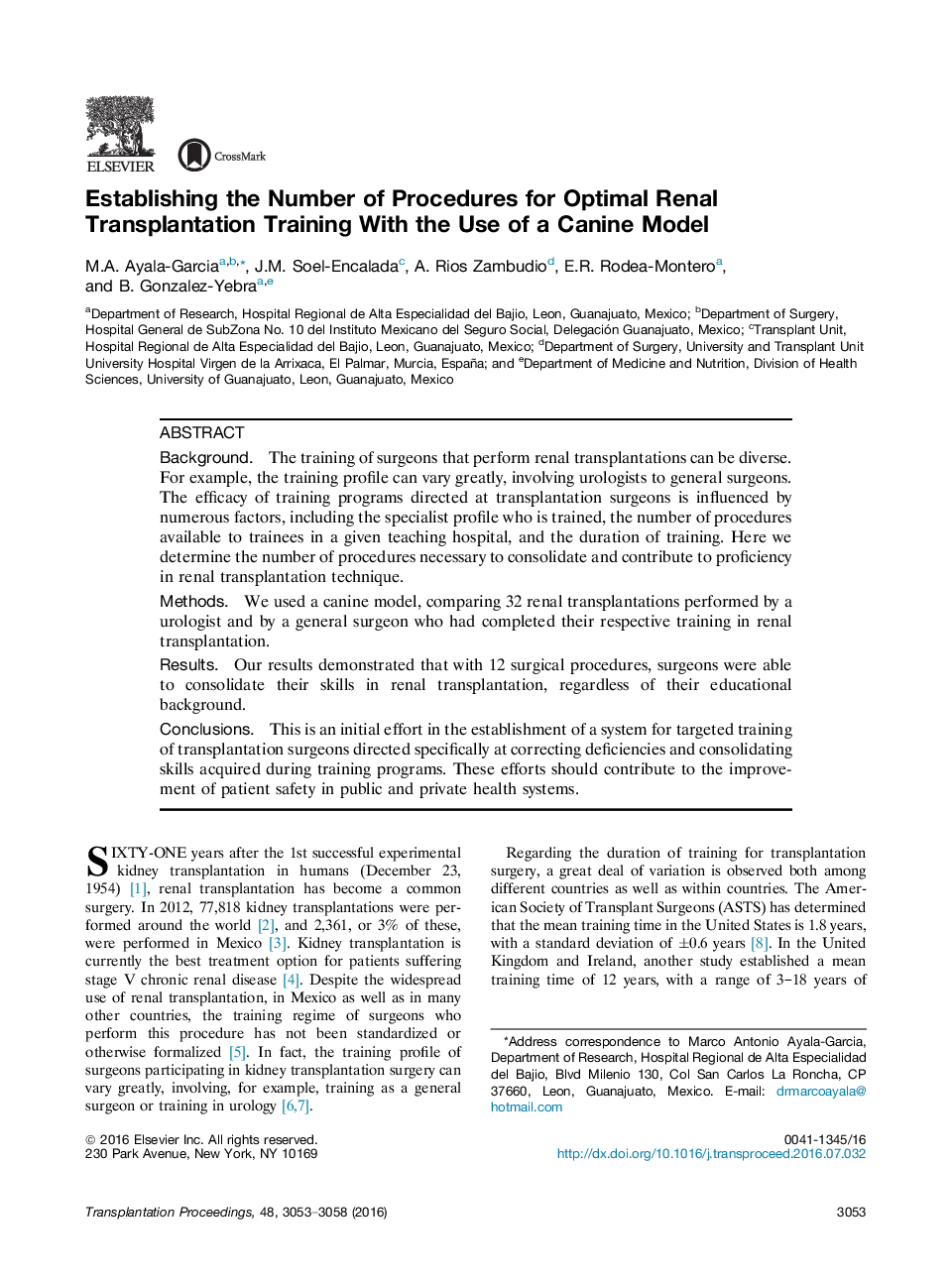| Article ID | Journal | Published Year | Pages | File Type |
|---|---|---|---|---|
| 5729030 | Transplantation Proceedings | 2016 | 6 Pages |
â¢We sought to determine the number of procedures necessary to consolidate and contribute to proficiency in renal transplantation technique.â¢Experimental study with the use of a canine model.â¢Comparison of time of 32 renal transplantations performed by a urologist and a general surgeon.â¢After 12 surgical procedures, surgeons are able to consolidate their skills in renal transplantation, regardless of their educational profile and/or site of previous training.
BackgroundThe training of surgeons that perform renal transplantations can be diverse. For example, the training profile can vary greatly, involving urologists to general surgeons. The efficacy of training programs directed at transplantation surgeons is influenced by numerous factors, including the specialist profile who is trained, the number of procedures available to trainees in a given teaching hospital, and the duration of training. Here we determine the number of procedures necessary to consolidate and contribute to proficiency in renal transplantation technique.MethodsWe used a canine model, comparing 32 renal transplantations performed by a urologist and by a general surgeon who had completed their respective training in renal transplantation.ResultsOur results demonstrated that with 12 surgical procedures, surgeons were able to consolidate their skills in renal transplantation, regardless of their educational background.ConclusionsThis is an initial effort in the establishment of a system for targeted training of transplantation surgeons directed specifically at correcting deficiencies and consolidating skills acquired during training programs. These efforts should contribute to the improvement of patient safety in public and private health systems.
